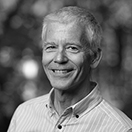Biodiversity Trends for Landscape Architects
Recording from live webinar on 07/23/24
Biodiversity Trends for Landscape Architects
In the last few years, a focus on conserving and increasing biodiversity has gained significant traction, including within the design and development disciplines. From large-scale actions like the United Nations Convention on Biological Diversity to recently implemented regulations like the United Kingdom’s Biodiversity Metric to more grassroots movements for pollinators and native plants, biodiversity issues are core to the work of landscape architects.
Although most designers now recognize the importance of biodiversity, there is still a lack of clarity surrounding what the larger biodiversity movement means for the work of landscape architects and the business of landscape architecture, how it can be meaningfully conserved or enhanced through existing modes of practice, and where the conversation about biodiverse landscapes will go next.
In this webinar, three expert panelists consider these big questions in a high-level dialogue about the biodiversity trends that landscape architects need to know.
Resources
- List of resources mentioned during the webinar plus the webinar chat transcript [PDF]
- Audience Q&A with written responses [PDF]
- LAF's Biodiversity Resource Guide for additional resources on biodiversity
Learning Objectives
- Identify the most current biodiversity trends that will affect landscape architects and designers
- Name several regulations and incentives for biodiversity in built landscapes
- Understand the role of urban sites in protecting, conserving, and enhancing biodiversity
Continuing Education Credits
This course is approved for 1.0 Professional Development Hour (PDH) through the Landscape Architecture Continuing Education System (LA CES) and meets the health, safety and welfare requirements (HSW). To earn 1.0 PDH (LA CES/HSW):
- View the full webinar above.
- Complete the short quiz by following the link below. (You must score 75% or higher.)
- Wait ~2 weeks to receive your confirmation email once the quizzes are graded and results submitted to LA CES.
Sponsor
Panelists

Ana Alvarez, PhD
Deputy General Manager, East Bay Regional Park District
Ana Alvarez represents the Park District—the largest regional park system in the United States—with the state and federal agencies on policy and legislative matters on accelerating the pace, scale, and impact of climate-smart conservation. She was appointed to the California 30x30 Partnership Planning Committee representing the California Biodiversity Network who serves as a critical partner in the implementation of an audacious environmental agenda.

Keith Bowers, FASLA
Founder, Biohabitats
As the founder and practice leader with Biohabitats, Keith Bowers has built a multidisciplinary organization focused on conservation planning, ecological restoration, and regenerative design. Biohabitats’ work spans the scale from site-specific ecosystem restoration projects involving coastal wetlands, urban rivers, temperate forests, and arid landscapes to regional watershed management and species conservation planning, to the development of green infrastructure and urban ecology planning for metropolitan areas throughout the country. Keith currently serves on the LAF Board of Directors

David Maddox, PhD
Executive Director, The Nature of Cities
David Maddox founded The Nature of Cities in 2012, a transdisciplinary platform for engagement across science, practice, and art boundaries—1,200+ contributors of all types from around the world and an (almost) annual global event called TNOC Festival. He has published widely in journal articles, books (fiction and non-fiction), poetry, and musical theatre.

Kristina Hill, PhD (Moderator)
Associate Professor, University of California, Berkeley
Kristina Hill studies urban ecology and hydrology in relationship to physical design and social justice issues. Her primary area of work is in adapting urban districts and shorezones to the new challenges associated with climate change. She is working on a book proposing new ways of adapting urban waterfronts to climate change while addressing social justice and biodiversity protection.
LAF hosts live webinars in which guest presenters share innovative work and discuss timely issues. The recorded webinars are archived on LAF's website, and many can be viewed on demand to earn continuing education credits through LA CES. To learn about upcoming webinars, subscribe to LAF communications.











